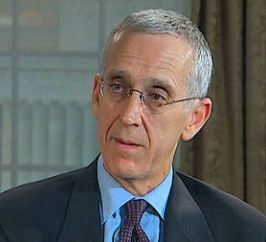

The difficulties with finding cooperation on climate change were illustrated at Copenhagen, which resulted in a political ‘accord’, but where there remained too much disagreement to arrive at a binding international treaty. There has been an ongoing political debate about the role of the United Nations, and whether more could be achieved in negotiations involving smaller groups of countries. The Copenhagen negotiations may have made the latter more likely. The lead US climate change negotiator, Todd Stern, stated:
You can’t negotiate in a group of 192 countries. It’s ridiculous to think that you could.
but that
It is certainly premature to write off the UNFCCC. There is a credibility that is provided by the full group. So on the one hand, I don’t think you can negotiate in that grouping, but on the other hand, it’s good for there to be a larger grouping that the smaller representative group can come back to.
Some of the rules [of the UNFCCC] can be difficult. If you’ve got 185 countries wanting to do something and a handful that don’t want to, that blocks everything.
Nicholas Stern has offered a different perspective, stating that “The fact of Copenhagen and the setting of the deadline two years previously at Bali did concentrate minds, and it did lead… to quite specific plans from countries that hadn’t set them out before”, and that it was vital to stick with the UN process, whatever its frustrations. Stern also stated that the “disappointing” outcome of December’s climate summit was largely down to “arrogance” on the part of rich countries.
Other perspectives in this debate have been offered by Jonathan Pershing, Robert Stavins, and Andrew Light. Gro Harlem Bruntland, the UN special envoy on climate change, has said that there is likely to be a two-track process, with negotiations both within, and outside the UN.
I have written more on the role of different countries at Copenhagen (including ‘rich’ countries) here. A major deadlock in the negotiations is due to developing countries being unhappy with Canada, Japan and Russia not being willing to be part of a second commitment period to the Kyoto Protocol. Another problem is that Saudi Arabia and other OPEC members (many of these countries could be considered to be ‘rich’, even though they are not Annex I countries) are blocking discussion of new legally binding protocols under the UNFCCC, sometimes using lack of progress under Kyoto as an excuse.
Game theory can provide useful insights when considering debates such as these. In fact, there has been a parallel debate in the game theory literature on whether cooperation is more likely to arise from a `grand coalition’ of all countries, or from smaller coalitions. The debate has been surveyed by Chander and Tulkens. An important contribution is from Finus and Rundshagen, who consider different ways to model coalition formation as a non-cooperative process.
In some ways the Annex I parties to the Kyoto protocol behave like a coalition — members behave more cooperatively with respect to each other than they do towards non-members. The set of Annex I Parties to the Kyoto Protocol is similar to the ‘open membership’ coalitions described by Finus and Rundshagen. Other countries are free to join the Annex I Parties, but generally they don’t want to. Many Annex I countries instead want to leave.
The European Union is closer to a ‘classical’ coalition. They choose their emissions in a cooperative manner, negotiate collectively in the UNFCCC, and participate in an emissions trading scheme together. Membership is not open, and decided collectively, in a manner similar to the ‘exclusive membership games’ described by Finus and Rundshagen. Processes where countries link their emission trading schemes may also work in a similar way to an exclusive membership game. In the cases studied by Finus and Rundshagen, although open membership coalitions are easier to join, the equilibria for exclusive membership coalitions involve larger coalitions and a more cooperative outcome.
A possible implication of this is that a process where a small amount of ‘major emitters’ negotiate a coalition, which others are then free to join, is likely to be less successful than a process that tries to find the largest possible group of countries who are willing to cooperate with each other. Carbon market linkage may also facilitate cooperation.
Комментариев нет:
Отправить комментарий